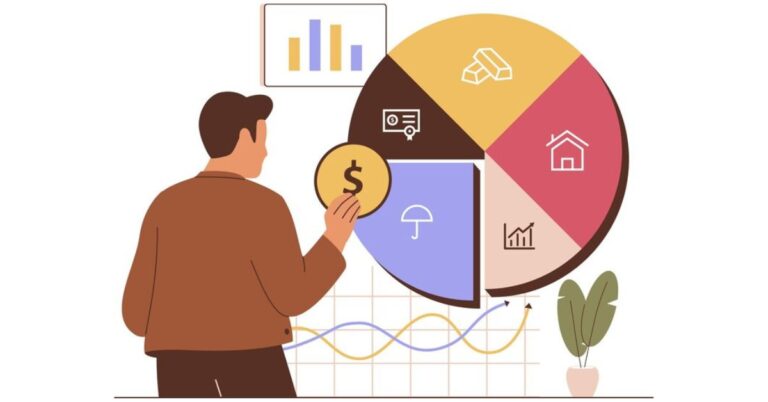Credit bureaus are companies that collect and store information about your credit history. They gather data on how you manage your loans, credit cards, and other debts. This information is used to create a credit report, which shows lenders how trustworthy you are when it comes to repaying debt. In South Africa, some well-known credit bureaus include TransUnion, Experian, and XDS.
Importance of Credit Bureaus in Managing Finances
Credit bureaus play a big role in both personal and business finances in South Africa. For individuals, a credit report helps lenders decide if you are eligible for a loan or credit card. It also affects the interest rates you are offered. For businesses, credit bureaus help assess whether customers or other businesses are likely to repay their debts.
By keeping track of your credit history, credit bureaus help you and lenders make better financial decisions. Managing your credit well can also improve your credit score, making it easier to get loans at lower interest rates.
What is a Credit Bureau?
A credit bureau is a company that collects and keeps track of people’s credit information. In South Africa, its main job is to gather details about how people borrow and repay money. This information is then used to create credit reports and calculate credit scores.
- Credit reports show a person’s borrowing history, including loans, credit cards, and how well they manage paying them back.
- Credit scores are numbers that represent how risky it is to lend money to someone, based on their credit history. A higher score means they’re more likely to pay back their debts on time.
The credit bureau helps banks, lenders, and other businesses decide whether to lend money to people by providing this important credit information.
Major Credit Bureaus in South Africa
In South Africa, there are several credit bureaus that help keep track of people’s credit histories. These bureaus collect information about how individuals manage their finances and use this data to create credit reports. Here are the top credit bureaus in South Africa:
- TransUnion
- TransUnion is one of the largest credit bureaus in South Africa. They offer services like credit reports, credit scores, and identity protection. They help consumers monitor their credit and provide businesses with credit risk assessments for loans and credit applications.
- Experian
- Experian provides similar services to TransUnion, including credit reports, credit scores, and tools to manage credit. They also help businesses assess the creditworthiness of individuals when applying for loans or other financial services.
- XDS
How They Differ
While all these credit bureaus provide similar services, they may differ slightly in the data they collect, the way they calculate credit scores, or the tools they offer to consumers for credit management. It’s a good idea to check your credit report from more than one bureau to get a full picture of your credit status.
How Credit Reports Work in South Africa
A credit report is a detailed record of your financial behavior. It shows how you manage your credit and can affect your ability to get loans, credit cards, or even rent a home.
What a Credit Report Contains
Your credit report includes:
- Personal Details: This includes your name, ID number, and contact information.
- Credit History: This shows all the credit accounts you’ve had, such as loans or credit cards, and how well you’ve managed them (e.g., whether you’ve made payments on time).
- Public Records: This section includes any legal records related to your finances, like bankruptcies or judgments against you.
The Importance of Reviewing Your Credit Report
It’s important to check your credit report regularly to:
- Make sure all the information is correct.
- Spot any mistakes or fraud.
- Understand your credit score and how you can improve it.
How Credit Bureaus Compile Information
Credit bureaus collect information from banks, credit providers, and other financial institutions. They use this data to create your credit report. They also update your report regularly based on your payment history and other financial activities.
By reviewing your credit report, you can stay informed about your financial standing and avoid surprises when applying for credit.
What is a Credit Score and Why Does It Matter?
A credit score is a number that shows how reliable you are at paying back money you owe. It’s like a report card for your financial habits. The score is calculated based on your credit history, such as how often you make payments on time, how much debt you have, and how long you’ve been using credit.
In South Africa, credit scores usually range from 300 to 850. The higher your score, the better it is for you. A good credit score means you’re seen as trustworthy by banks and lenders. This can help you get approved for loans or credit cards more easily, and you might even get lower interest rates, which means you pay less money in the long run.
On the other hand, a poor credit score shows that you might struggle to repay what you owe. This can make it harder to get loans or credit cards, and if you do, you may have to pay higher interest rates. A low score could also affect your ability to rent a home or even get certain jobs.
So, your credit score plays a big role in your financial life, affecting the products and services you can access and how much you’ll pay for them.
How to Check Your Credit Report for Free
In South Africa, you have the right to check your credit report for free once a year. This helps you stay informed about your credit status and spot any mistakes or fraud.
Here’s how to check your credit report:
- Visit a Credit Bureau: There are several credit bureaus in South Africa like TransUnion, Experian, and XDS. You can visit their websites.
- Fill Out a Request Form: On the website, you’ll need to fill out a form with your personal details to verify your identity.
- Download Your Report: Once your identity is verified, you’ll be able to download your credit report for free.
- Review Your Report: Look at your credit report to see your payment history, loans, and any accounts in your name. Make sure everything is accurate.
Why It’s Important: Checking your credit report helps you understand your financial health. It’s important to do this regularly to ensure your credit report is correct and to avoid any surprises when applying for loans or credit.
Improving Your Credit Score
Your credit score is an important number that affects your ability to borrow money or get good deals on loans. Here are some simple tips to help improve your credit score:
- Pay Bills on Time
Always pay your bills, like credit cards or loans, on time. Late payments can hurt your credit score. - Reduce Credit Card Balances
Try to keep your credit card balances low. Paying off debt or using less of your available credit helps improve your score. - Dispute Inaccuracies in Your Credit Report
Sometimes, your credit report may have mistakes. If you find any, contact the credit bureau to correct them. - Practice Responsible Credit Management
Be careful with how you use credit. Only borrow what you can afford to pay back and avoid taking on too much debt.
What to Do if You Find Errors in Your Credit Report
Sometimes, there might be mistakes in your credit report. Here’s what to do if you find one:
- Identify the Errors: Look carefully at your credit report for mistakes. This could include incorrect personal details (like your name or address), wrong account information, or payments marked as unpaid when they were paid on time.
- Report the Errors: Once you’ve found a mistake, contact the credit bureau that issued the report (like TransUnion, Experian, etc.). You can usually report errors online, by phone, or by mail. Make sure to explain the issue and provide any supporting documents (like bank statements or proof of payment).
- Dispute the Information: The credit bureau will investigate your dispute. They will contact the company that reported the incorrect information to check if it’s true. This process usually takes about 30 days.
- Know Your Rights: Under South Africa’s National Credit Act, you have the right to challenge any wrong information on your credit report. If the mistake is not fixed, you can ask the credit bureau to add a note explaining the dispute, or even take legal action if necessary.
Remember, it’s important to check your credit report regularly for errors, as they can affect your credit score and ability to get loans or credit.
The Importance of Credit Bureaus for Businesses
Credit bureaus play a big role in helping businesses make smart financial decisions. They provide businesses with important information about customers’ credit history and financial behavior.
1. Assessing Customer Creditworthiness
When a business needs to decide whether to give a customer credit (like a loan or a buy-now-pay-later deal), they can check the customer’s credit report. This helps the business see if the customer has a good track record of paying bills on time or if they might struggle to repay.
2. Preventing Fraud
Credit bureaus help businesses spot red flags that could indicate fraud, like fake identities or unusual credit activity. By checking customer information through a credit bureau, businesses can protect themselves from being scammed.
3. Managing Risk
For businesses, lending money or offering credit always involves some level of risk. Credit bureaus provide valuable insights that help businesses measure this risk and make safer decisions. For example, if a customer has a history of unpaid debts, the business might decide to ask for a deposit or not offer credit.
In short, credit bureaus give businesses the tools they need to protect themselves, manage their finances better, and make informed choices.
Conclusion
Credit bureaus play a crucial role in helping South Africans manage their finances. They provide important information about your credit history and score, which lenders use to decide if they can trust you with loans or credit.
By checking your credit report regularly, you can spot any mistakes, track your progress, and take steps to improve your financial health. Stay in control of your finances, check your credit report today!


